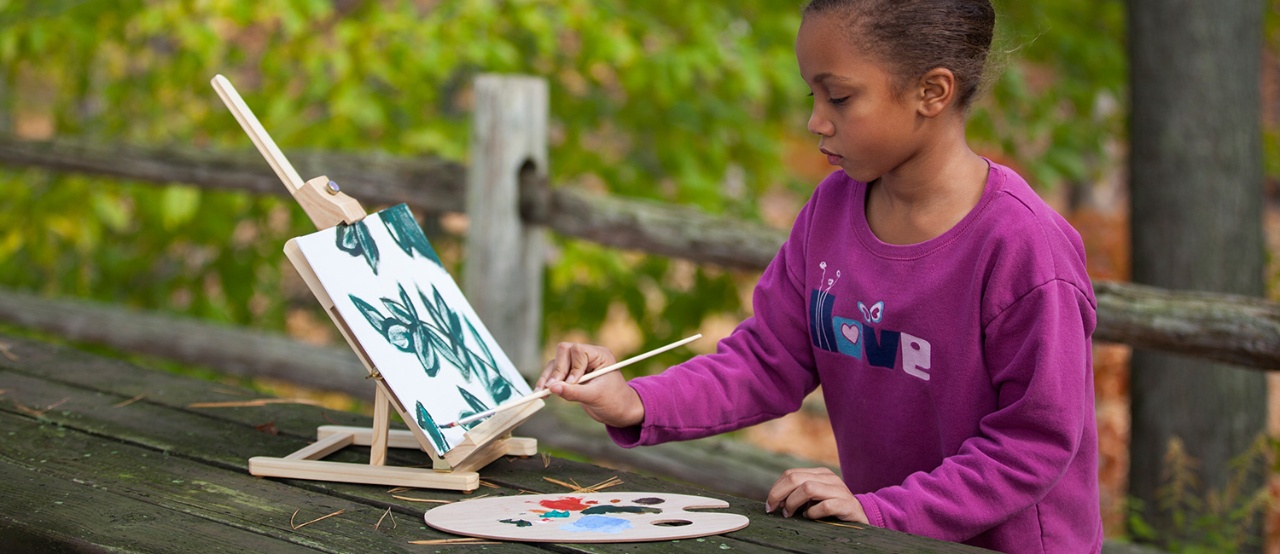 Leadership
Leadership
Scout Out Her Passions
Remember the thrill you felt when you scored your first ever soccer goal? Or how proud you felt getting flowers after a school play? Those experiences weren’t just fun ways to make new friends, they helped make you the confident, ambitious woman you are today. Plus, experts say kids who participate in extracurricular activities could actually do better in school. “Out-of-school experiences help girls develop real skills like teamwork and perseverance—skills that she’ll need to do well in school and throughout her life,” says Girl Scouts Chief Girl Expert, Developmental Psychologist Dr. Andrea Bastiani Archibald. With these tips, it’ll be fun and easy to find the right fit for your growing girl.
Explore Your Options
Check your school, parks and recreation department, museums, libraries, and community centers for activities that might be fun to try out. Additionally, ask other parents what their kids are involved with and whether they’re happy with the experiences. Then make a list of the activities that fit both your budget and schedule.
Ask These Questions
Is your daughter super imaginative? Perhaps something artistic would be a match. Does she love running around outside? Think about soccer or softball. Is she obsessed with Lego and figuring out how things work? A junior robotics club or coding class could be right up her alley. Remember that your daughter might not be into the same things you were as a child, no matter how much you wish that were the case! Really pay attention to her personality and then let her choose from a few options you think she might like.
Keep Her Interested
Tell her how proud you are of her for trying something new! If she can’t stop talking about how much fun she’s having in her new activity, you’ve probably found your match! Congrats! If she isn’t as enthusiastic, though, look into why. Maybe she’s not being challenged enough, or perhaps she’s not ready to be in such an advanced group. Ask her about her feelings and try to come up with solutions together—or talk to her teacher or coach to see if you can get her up to speed or help her feel more engaged. “Some activities simply might not be a match for your child, though,” Dr. Bastiani Archibald notes. “Of course it might be disappointing if you loved ballet or piano as a child and your daughter isn’t into it, but it’s important to recognize and value her unique personality and interests.”
Watch for Burnout
When you ask her about her activities, does she just shrug and say they’re “okay,” when two weeks ago, she couldn’t wait to tell her everything that she’d learned or accomplished? “If you notice that she’s not as excited as she used to be, try to find out why,” says Dr. Bastiani Archibald. “Having a very busy schedule with not a lot of downtime can make her overtired and make it hard for her to enjoy her hobbies as much as she would normally.” If that’s the case, sit down with her and see what can be adjusted in her schedule. Simplifying her week and her time obligations can help her enjoy her favorite things again. “But know that as a child grows, her interests may shift and change as well, so if she’s really not having fun anymore, it may be time to ditch that particular activity.”
Try Another Path
Struck out this time? Time to pick yourself up, dust yourself off, and start all over again! Keep in mind the lessons you and your daughter learned together from your first go-round—what worked and what didn’t—when you choose the next activity to try. Dr. Bastiani Archibald notes that “there’s a whole fun world out there, and you and your girl will have an amazing journey exploring it together.”

